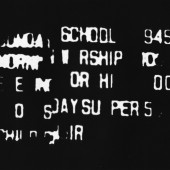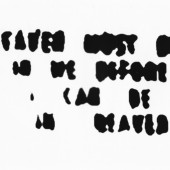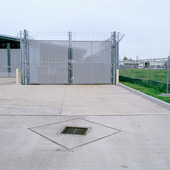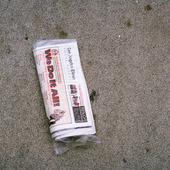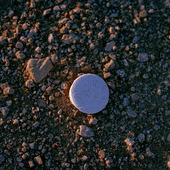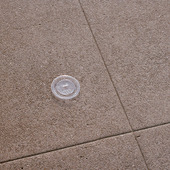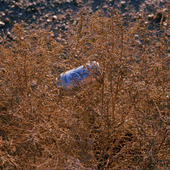Elizabeth Eisenstein
Location:
Los Angeles, United States
Elizabeth Eisenstein is an artist currently based in Los Angeles, CA. Her work centers around the photographic image, both in the traditional sense of the term (film and digital photographic stills) as well as appropriated digital imagery found primarily online. She graduated in 2012 from New York University, where she received her Bachelor of Fine Arts degree in Studio Art, with concentrations in photography and sculpture. She is also devoted to learning a wide array of traditional craft practices, including but not limited to ceramics, weaving, and other textile arts.
www.elizabetheisenstein.com
My work primarily explores landscape and how it can be portrayed through the medium of photography. Specifically, I am interested in the inherent passivity of the medium, and continually struggle with what I feel is a lack of complete creative autonomy. Landscape photography is a prime example of this passivity, as it relies on an uncontrollable source of beauty: the earth. Landscape photographers unflinchingly appropriate this beauty as content for their art, and in doing so they claim authorship of a force that exists independently from their gaze.
I have always found this aspect of medium difficult to accept, and as a result have deviated from shooting classic landscape photography exclusively. Sometimes I counter this lack of creative power by enacting complete control over the physical construction of a photographic composition; other times I embrace the fact that I am capturing something beautiful that I did not create, and through my use of composition, lighting, and technique, transcend this self-perceived limitation to reveal hidden beauty. These complexities and contradictions of the medium provide the conceptual jumping-off point for my practice, from which I explore the boundaries of authorship and ownership of photographic content, and the fine line between curation and creation.
Additionally, I am interested in what happens when representations of reality are visually decontextualized or altered to the point of abstraction. Through manipulation of form and composition, I explore the limits of what the flattened photographic plane can uphold as identifiable or recognizable. Through the photographic process, a sweeping landscape or specific subject is flattened, framed, and transformed through numerous steps—an object reflects light which is directed through a camera lens, exposed to film or a digital sensor, further transfigured in the darkroom or computer, and outputted onto a sheet of paper—and I enjoy following the image’s mutation through each of these stages. Representations of reality become pattern, texture, shape, geometry, and it is through these transformations that I aim to reveal new visual phenomena and concepts.
Read about the photographic exploration ‘Street View Landscapes'
www.elizabetheisenstein.com
My work primarily explores landscape and how it can be portrayed through the medium of photography. Specifically, I am interested in the inherent passivity of the medium, and continually struggle with what I feel is a lack of complete creative autonomy. Landscape photography is a prime example of this passivity, as it relies on an uncontrollable source of beauty: the earth. Landscape photographers unflinchingly appropriate this beauty as content for their art, and in doing so they claim authorship of a force that exists independently from their gaze.
I have always found this aspect of medium difficult to accept, and as a result have deviated from shooting classic landscape photography exclusively. Sometimes I counter this lack of creative power by enacting complete control over the physical construction of a photographic composition; other times I embrace the fact that I am capturing something beautiful that I did not create, and through my use of composition, lighting, and technique, transcend this self-perceived limitation to reveal hidden beauty. These complexities and contradictions of the medium provide the conceptual jumping-off point for my practice, from which I explore the boundaries of authorship and ownership of photographic content, and the fine line between curation and creation.
Additionally, I am interested in what happens when representations of reality are visually decontextualized or altered to the point of abstraction. Through manipulation of form and composition, I explore the limits of what the flattened photographic plane can uphold as identifiable or recognizable. Through the photographic process, a sweeping landscape or specific subject is flattened, framed, and transformed through numerous steps—an object reflects light which is directed through a camera lens, exposed to film or a digital sensor, further transfigured in the darkroom or computer, and outputted onto a sheet of paper—and I enjoy following the image’s mutation through each of these stages. Representations of reality become pattern, texture, shape, geometry, and it is through these transformations that I aim to reveal new visual phenomena and concepts.
Read about the photographic exploration ‘Street View Landscapes'
